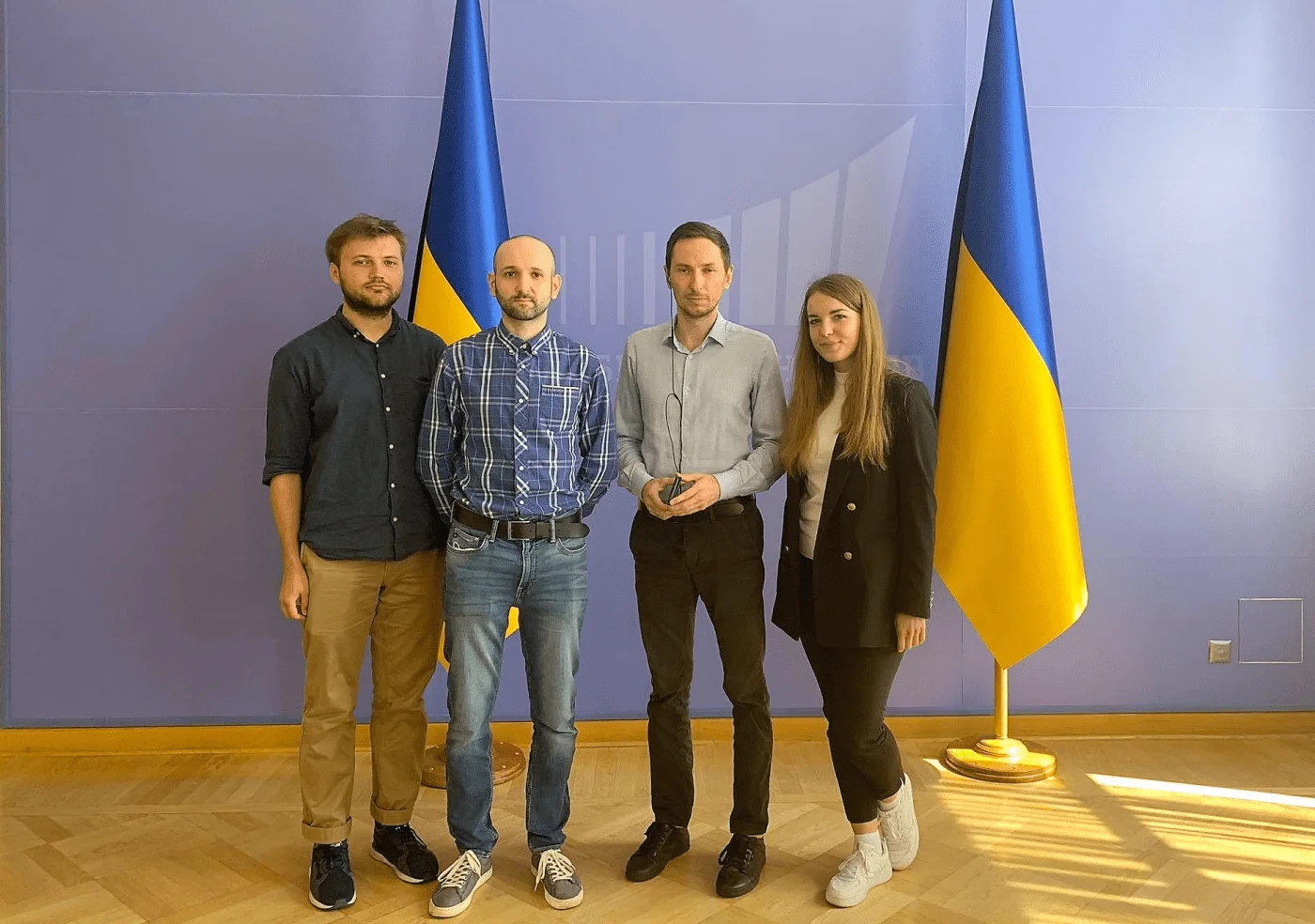Цифрові права та
кібербезпека
Цифрова інклюзія, захист персональних даних та кібербезпека мають бути в центрі
цифрових реформ в
Україні
Digital rights and
cybersecurity
Digital inclusion, personal data protection, and cybersecurity must lie at the heart of digital
reforms in Ukraine

Базовою метою захисту персональних даних повинно бути забезпечення ключових прав та свобод громадян.
В умовах пандемії, спричиненої поширенням коронавірусної інфекції COVID-19, держави у всьому світі запроваджують інноваційні цифрові рішення для забезпечення здоров’я населення. Ці інноваційні методи спостереження та відстеження громадян можуть назавжди змінити наш світ, як і сама хвороба. Більшість із цих змін не є тимчасовими, і багато з них, як от звуження особистісних свобод і втручання у приватність, можуть мати негативні наслідки для демократії та прав людини у час після пандемії. Це особливо актуально для молодих демократій, де уряди лише починають урегульовувати сферу цифрових прав громадян.
The primary goal of personal data protection should be to enforce the fundamental rights and freedoms of citizens.
Over the past year, during the pandemic caused by COVID-19, countries worldwide implemented innovative digital solutions, including the provision of online public services, to protect the health of their population. And just as the disease has changed our world forever, so could innovative methods for monitoring and tracking citizens. Most of these changes are not temporary. Many – such as restrictions on citizens' freedoms and intrusion into privacy – may have negative consequences for democracy and human rights after the pandemic. For Ukraine, a country with relatively weak institutions, attention to digital rights and access to digital services is crucial.
В Україні, базові цифрові права, такі як право на захист особистих даних та право на конфіденційність, неодноразово порушувалися під час введених у зв’язку з пандемією карантинних обмежень.
Зокрема, задля протидії поширення коронавірусної інфекції COVID-19, урядом був розроблений мобільний додаток “Вдома”, який відстежує місцезнаходження громадян та збирає їх персональні дані. Такий додаток викликав безліч запитань у експертів із захисту персональних даних та кібербезпеки щодо його надійності та безпеки, адже останній розроблявся у дуже короткі строки. Більше того, дані про хворих на COVID-19 зберігаються централізовано, що в свою чергу підвищує ризик витоку таких даних.
COVID-19 також загострив проблему захисту персональних даних, які збираються задля надання онлайн-послуг, які не пов’язані з COVID-19. Через підвищену потребу у таких е-послугах під час карантину та неможливості їх отримати офлайн, багато е-послуг було створено ‘нашвидкоруч’ без належної уваги до питання безпеки таких послуги та захисту персональних даних.
Інститут Інноваційного Врядування, розуміючи важливість безпеки та захисту персональних даних громадян України, за підтримки Міжнародного Фонду Відродження та Німецького Фонду Маршалла Сполучених Штатів Америки, провів дослідження щодо питань порушення цифрових прав під час пандемії COVID-19 в Україні з урахуванням кращих практик Євросоюзу.
Despite the many benefits of digital transformation, several risks in this process can affect its results. Systematic digitalisation of public services in Ukraine, which began with the launch of the “Action” (Diia, in Ukrainian) Unified Public Services Portal, took place during the quarantine period, which significantly complicated the process. Shortly after the launch of the Diia portal, the Government of Ukraine presented a mobile application called Diia.Vdoma to track infected people and ensure they follow the rule of self-isolation. Such applications gave rise to debates among human rights organisations if tracking citizens is an intrusion into privacy. Moreover, due to the lack of transparency and clearly defined rules for tracking personal data by digital services and mobile applications during quarantine, there is an increased risk that such surveillance technologies may violate human rights. As a country with relatively weak institutions, Ukraine is particularly at risk of violating the principles of personal data protection.
In contrast to the Member States of the European Union, where personal data protection is ensured by the General Data Protection Regulation (GDPR), Ukraine does not currently have efficient data protection systems. With the support of the International Renaissance Foundation and the Baltic Sea Trust for Regional Cooperation of the German Marshall Fund of the United States, the Institute of Innovative Governance, in consortium with six Eastern Partnership countries, developed a study on digital rights violations during the COVID-19 pandemic in Ukraine and Eastern Partnership countries.

Цифрова трансформація повинна бути інклюзивною та зрозумілою для кожного.
Мета цього проєкту полягає в ідентифікації та систематизації головних викликів, що стосуються цифрових прав в Україні під час пандемії COVID-19, а також підвищенні обізнаності громадян про їх цифрові права, враховуючи кращі практики ЄС. Шляхом залучення до обговорення усіх зацікавлених сторін з громадського, державного, та бізнес-секторів, проєкт також має на меті створення рекомендацій для уряду щодо захисту цифрових прав в Україні.
Digital transformation must be inclusive and clear for everyone.
This project aims to identify and systematise the main challenges to digital rights in Ukraine and the Eastern Partnership countries during the COVID-19 pandemic and raise citizens' awareness of digital rights in line with the EU best practices. By involving stakeholders from the civil, public, and business sectors in the discussion, the project also aims to prepare specific recommendations to the Government and Ministry of Digital Transformation on protecting digital rights in Ukraine during COVID-19.


